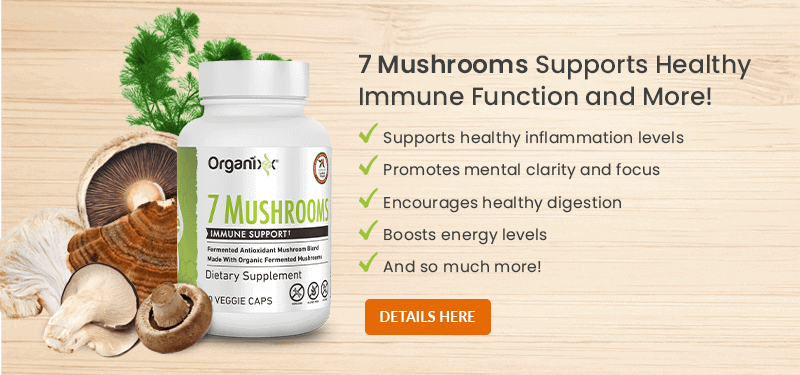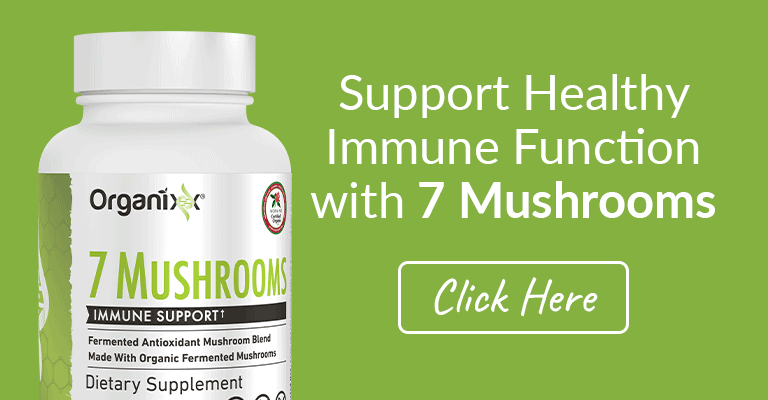How Poor Sleep Sabotages Your Gut Health
Video Transcript:
Did you know that if you do not sleep seven to nine hours every night and optimize your sleep, that it will directly impact your gut health? So, balancing your gut health means you need to optimize your sleep. And today I’m going to share with you five various reasons and sources for why sleep can affect your gut. So, this is really important.
1. Lack of Sleep Disrupts Gut Microbiota
Number one, your lack of sleep actually leads to a disruption of your gut microbiota [1]. And that can lead to something called gut dysbiosis, it can lead to inflamed lower GI tissue, so the tract of your small intestine and your colon can become inflamed by a lack of sleep. Now, there’s a lot of different reasons behind this and I’ll explain as we go through these various reasons.
The Gut Needs Hibernation
But one of the things you have to understand is that your digestive system needs to hibernate. It takes a pause and it gets its own rest and relaxation and rejuvenation every evening. And so if you are not sleeping during the time your gut is relaxing and resting and rejuvenating, from a cellular perspective, then that minimizes the detoxification pathways of your gut, it lowers an assorted, it has a huge effect. And it’s really important to understand that the global effect of your gut health affects your brain, there’s a gut-brain axis. We have a gut-heart axis, gut-thyroid, so a lot of secondary- and tertiary-related symptoms can all come back to sleep disturbances impacting your gut health.
2. Sleep Disturbances Alter Gut Motility
Number two. You will experience, via sleep disturbances, you will experience an altered gut motility. That means that when we sleep and we have good, deep, regular sleep, we have the ability for the body to process and move contents. Bowel contents are easily processed through the body when we sleep better because that tissue is not inflamed, the microbiota is healthy and flourishing. That minimizes constipation, diarrhea, and even IBS and GERD-like symptoms. So, that’s very important.
3. Poor Sleep Quality Can Cause Leaky Gut
Now, number three, and most critically, when I look and work with patients and we use labs and I’ll do stool testing, the nature of poor sleep actually increases your gut’s permeability. So, basically, what that means is that you have single-cell lining in your digestive system. So, think of your small intestine. There’s a single cell, one single cell that protects the walls of your intestine and the blood from everything that’s happening inside the digestive tract. So, your small intestine.
And when we have poor sleep or disturbed, disrupted sleep, we can develop something called leaky gut syndrome where the walls of the intestines become fractured and open up and are not as tight, those junctures, the gut junctures are not as tight. And the walls end up leaking.
And we have food contents, we can have toxins and bacteria and undigested food actually leak into the bloodstream. That becomes a whole other problem where we’re dealing with allergies and inflammation and swelling and assorted autoimmune disturbances or autoimmune disorders. We can directly link back to this increased gut permeability.
So, sleeping is so critical for lowering your IBS and IBD symptoms and actually is a preventative. Sleep is a preventative to developing those disorders.
4. Gut-Brain Axis: Good Sleep Can Heal Gut Imbalances That Could Otherwise Increase Brain Health Risks
Number four is, there is, as I mentioned, there is a gut-brain axis. We call it a bidirectional communication pathway. The gut – your microbiota, the microbiome – signals for assorted neurotransmitters to be processed and called up for in the brain. The gut controls that. So, that impact from the gut signaling to the brain, we end up having changes in gut functionality. We have visceral sensitivities. And we’ll even have something called functional apepesia.
So, that’s something where even the contents, the emptying of the stomach slows down and can then affect IBS-like symptoms or create those symptoms. So that, longer term, when we’re looking at the gut-brain axis, if you want to age well and you want to minimize any neurological imbalances or you want to maintain optimal brain health and minimize your risk of having Alzheimer’s, dementia, Parkinson’s, and even MS, it’s really critical that we fine-tune and really focus on healing your gut by sleeping, but also adding some supplementation to the mix. And I’ll share with you my favorite supplementation to recommend, as well.
5. Increased Cortisol Levels Cause Sleep Disturbances and Alter the Gut Microbiome
Number five. What we see is that when we don’t sleep, there’s an increased stress response mechanism. And I might be a broken record here for a lot of you who watch a lot of the Ask Dr. Melissa videos and the content I create here for our Organixx community.
But a lot of the time, when we don’t sleep, it’s because we have increased cortisol. So, cortisol is a stress hormone and that can sometimes be the root cause of sleep disturbances. But the problem here is increased cortisol not only affects our sleep process, but it alters the gut microbiome.
Microbiome Imbalances Can Cause Insulin Level Imbalances
And that changes the actual composition of the microbiome, we will see increases in insulin level, so resting glucose increases, pre-diabetic states, metabolic imbalances, metabolic syndrome. We’ll see gastrointestinal imbalances all because the stress response mechanism is heightened because we’re not sleeping.
Sleep is a restorative process. It’s the way our body resets. We have a whole lymphatic process in our brain called the glymphatics [2]. So, we have nighttime housekeepers and cleaners in our brain that gets rid of all sorted non-functioning, no longer needed cells, and it gets rid of inflammation and keeps our brain healthy. Part of that bidirectional process between the gut-brain axis is that the brain is going to signal down to the gut.
Consume Probiotics and Prebiotics
So, it works in all categories where sleep is critical for lowering the cortisol, recalibrating our adrenals, which produce cortisol, but also allowing the gut to heal. So, if you have sleep imbalances and it’s affecting your gut, my number one go-to make sure you’re taking a very powerful probiotic.
So, make sure you’re eating probiotics, you get prebiotics – the dense fibers like Jerusalem artichoke and inulin fiber in your daily food content. There’s some really good organic fiber additives that you can add to smoothies and yogurts, and you can even have that before bed. That helps aid in supporting your gut, optimal gut balance.
Test Cortisol and Address Elevated Levels
But then also addressing cortisol. I actually test my patients. We do saliva testing. We’ll test four different times throughout the day, so we call it a four panel cortisol test. And cortisol at night or leading into dinner and right before bed are often, my patients who have sleep disturbances, it’s very high.
And cortisol can be addressed by doing things like calming the body. Meditating can reduce our stress levels by up to 24%. This has been thoroughly researched. And one of my favorite doctors, Dr. Deepak Chopra, has a whole book all about resetting the body and the effects of stress on our body.
So, that’s very important. Then also reaching for adaptogenic herbs like holy basil and rhodiola, huge fan of, and also adaptogenics that we find in our 7 Mushrooms blend. Those can help calm and offset the stress response mechanism.
Beyond Supplementation
But ultimately, supplementation is just one part of the mix. We have to get you sleeping and the more you sleep better and more thoroughly, it’s this compounding effect. So, it’s a good, positive snowball leading towards you recalibrating and balancing your gut.
So, if you are having sleep disturbances, I’m happy to help specify and recommend various assorted programs and protocols for you if you are dealing with that. I have a whole masterclass that we created for how to sleep better, so that is something that I’d recommend that you take a look at taking, joining that masterclass.
But overall, if you are having gut imbalances, I definitely don’t want you to neglect your sleep cycle because sleep is absolutely critical for healing your gut. And I look forward to answering any questions that you might have about this sequence of sleep disturbance and the issues with your gut in future videos.
7 Mushrooms from Organixx contains 7 of nature’s most powerful mushrooms for anti-aging, longevity, and immune support. Using centuries-old knowledge of the power of nutritional mushrooms and our breakthrough new formulation process we’ve unleashed the power of mushrooms in a way never before done.







How do I sign up for her Master Class on Sleep?
Hi Pamela,
Thanks for your question. We appreciate your interest.
Dr. Melissa's Optimal Sleep Masterclass is hyperlinked in the transcripted article listed above. You can find it under - "Beyond Supplementation".
Alternatively, you can also go here: https://www.naturalhealthresources.com/optimalsleep/
We hope this helps and wish you a happy & healthy day! Cheers to your good health!
What if a person is on night shift, so awake during the nighttime hours, but is getting 7-9 hours of sleep during the day? Is this adequate for resting/healing the gut (and other organs that would “detox” during sleep), or does sleep have to take place specifically at night, for this to occur?
Do you do gut testing, or do you know a Doctor I can see in north central Oklahoma or Wichita,KS?